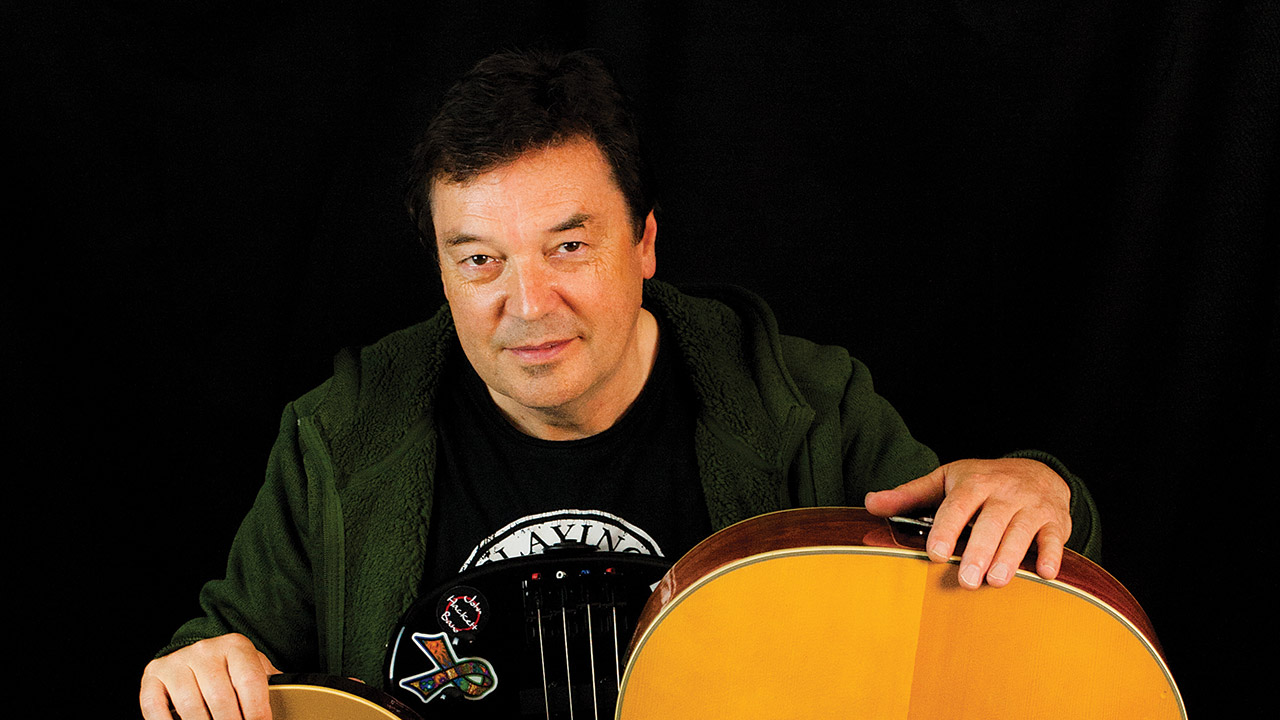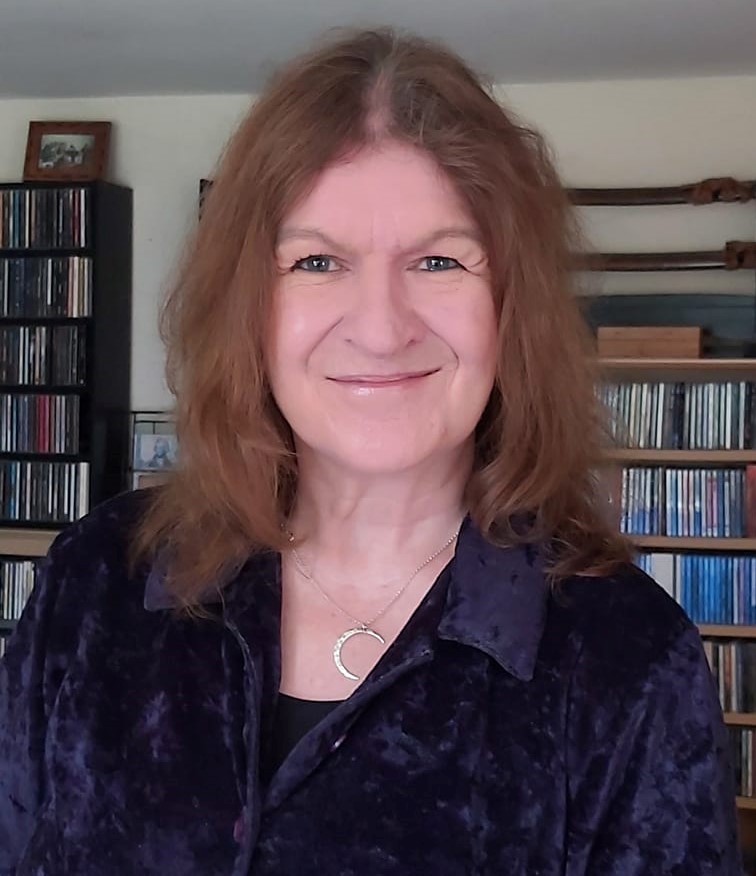With a musical career spanning almost 50 years, John Hackett is one of prog’s ‘go to’ flute players, appearing on albums by musicians such as Anthony Phillips, Nick Magnus and most recently, Ms Amy Birks. He’s collaborated on and recorded several classical albums as a solo artist, in duets or bands, including Symbiosis, and these days he records and tours with his own eponymous band, but it’s his contributions to elder brother Steve’s albums for which he’s best known.
What’s the story behind The Piper Plays His Tune?
I did it for fun and to help keep myself sane during lockdown. It also goes back to the early days when the Hackett family were living in a small flat in Victoria, London, when I shared a bedroom with my brother. In the 1960s, our dad worked in an office then started selling his paintings on the railings in Bayswater Road. He started making more money selling his paintings, so he chucked in his office job and took over the family lounge, painting in there while Steve and I were in our bedroom making and listening to music. Of course, when you’re growing up, these things seem perfectly normal.
When did you decide to record the album?
I wanted to make use of the time since we stopped doing gigs last March and I’ve been getting to grips with the technology as I relied on other people to do the clever stuff. I’ve co-produced with other people, but it was always me sitting at the back, saying, “Could you tune the flute up a bit?” or, “More reverb, please.” But it’s a bit like being in a car and it’s very different taking the wheel yourself. I really enjoyed the whole process of recording, doing all the instruments myself, one minute picking up an electric guitar, the next minute the bongos.
Are all the songs new or did you have any existing material to put on it?
A mixture of both really. There’s one song called Julia, which I wrote in about 2004 and it was one of my first attempts at either a pop or rock song. I did a rough demo of it here and my wife said, “That’s nice; who’s that singing?” And I said, “Me!” By contrast, In Love is a more proggy track, which I wrote with our band in mind and it has a change in time signature.
Do any of the songs have specific themes?
Broken Glass is my lockdown song. I wrote it at the beginning of last year, and I hadn’t quite finished the lyrics, which were about walking the busy streets. When lockdown came and I wrote the final verse, the streets became empty! Crying Shame is about the environment. I’m not a campaigner for environmental issues, but I’m as guilty as anyone else of using plastic and driving a car with a petrol engine. Obviously, it’s something we all must think about. ‘It’s too late when the piper plays his tune’, a line on it, works on two levels. I am the piper as I play the flute and the whole album is me doing my thing. There’s also the idea of a piper playing not just at weddings but also at funerals where, if the piper appears, well, it’s a bit too late.
What was it like working with Ms Amy Birks on her solo album, All That I Am & All That I Was?
It’s a wonderful album and I’m so pleased she’s been mentioned in so many people’s top 20s. It’s so well deserved. She’s a fantastic artist – not just a super singer but she also writes absolutely wonderful songs. I sent her some copies of my songs. She liked Crying Shame and recorded a version, but I don’t know if it’ll see
the light of day. Her music is very powerful stuff, and I’m delighted I’m playing on her next album as well. I find with her material, less is more, so when you play the flute, you dare not get in the way of that gorgeous voice, which is always sitting out front. I love the style she’s developed in her songwriting and its classical influences.
What are your own forthcoming projects?
There’s a flute and guitar album with Nick Fletcher from the John Hackett Band coming out in the spring. It has music by Bach, Handel, Scarletti and Vivaldi’s wonderful Goldfinch Concerto. Nick’s also just released his solo album, Cycles Of Behaviour. It started off as a duo album with me, but it got to the stage when it was more 80 per cent Nick so it made total sense for Nick to take it over as a solo album. It’s got people like Dave Bainbridge on it, too.
Are you missing playing live?
There’s nothing quite like live gigs and the atmosphere they generate. As a musician playing live, when something goes wrong, you think, “Oops, I missed that top B-flat,” but in the great scheme of things, it’s more about the overall experience and the audience reaction, the warmth and communication. We’re all definitely ready to get back out there again. We will get back to it, I’m sure. In Shakespeare’s time, theatres went dark when they had the plague. The arts will come bouncing back but unfortunately, there will be a lot of casualties.
Will you play live with your brother again?
I have no idea, to be honest. He’s got his crack unit now, so he doesn’t need me! We get together usually once a year just before Christmas at Trading Boundaries in East Sussex as an acoustic quartet: Steve on guitars, me on flute, Rob Townsend on sax and Roger King on keyboards, so we do still play occasionally.
This article originally appeared in issue 119 of Prog Magazine.

